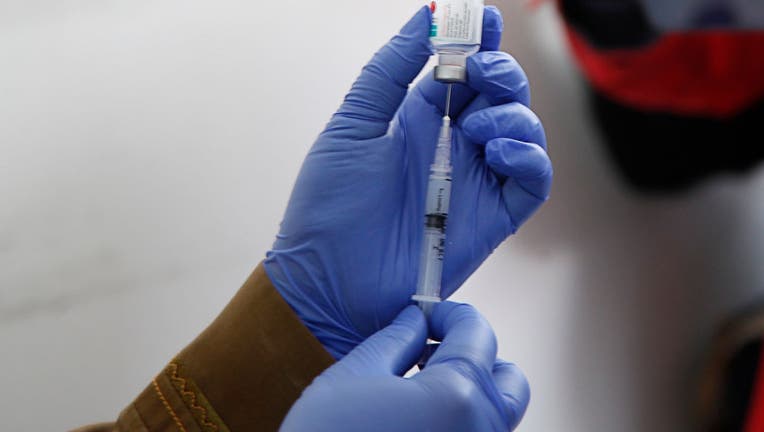Vaccines will be limited in supply and logistically challenging to distribute at first in California

A file image shows a medical worker preparing a vaccine during a COVID-19 vaccine trial. (Photo by Adriana Adie/NurPhoto via Getty Images)
SACRAMENTO, Calif. - California Gov. Gavin Newsom on Monday said that the first phases of a coronavirus vaccine would likely be limited in supply to small, targeted groups, despite what President Trump has promised.
"Don't expect you can go down the pharmacy during this calendar year and get a vaccine," Newsom said. "It is simply unrealistic. We don't anticipate mass availability until 2021."
Newsom couldn't speculate on which month of next year that would be.

California promises independent testing of COVID-19 vaccine
Gov. Newsom said California will conduct independent testing of any potential vaccine that is developed for the coronavirus.
The earliest vaccines, being developed by Moderna and Pfizer, might be available as early as November and December, but they will only be available for first responders and high-risk groups including those in custody, people of color and those in rural communities, Newsom said.
And even when the vaccine is ready, Newsom said there would be logistical challenges, like finding enough needles, bandages, masks and PPE, and finding enough space to store all the doses.
Not only that, but the vaccines will have to be stored in ultra-cold units, some at -70 degrees Celcius, so there will be a great need for dry ice, Newsom said.
Last week, fresh off his own coronavirus recovery, Trump promised a vaccine by the end of the year.
"We are delivering lifesaving therapies," Trump said Thursday. "And we'll produce a vaccine before the end of the year, or maybe even sooner."
So, how fast can the scientists move?
"It will move at the speed of trust," Newsom said.
California will independently review the safety of any coronavirus vaccine that receives federal approval before distributing it, Newsom vowed, announcing the creation of a scientific review committee to check the process for any vaccine approved by the U.S. Food and Drug Administration. Members include San Francisco’s health officer, Tomás Aragón, as well epidemiology experts from UC Berkeley, UCLA, UC San Diego, Stanford University and Kaiser Permanente.
“A question I often get is: Am I going to take someone’s word for it as it relates to vaccines? Of course we don’t take anyone’s word for it,” Newsom said. “We will do our own independently reviewed process with our world-class experts.”
A vaccine won't end the pandemic, Newsom warned. Preventing the disease is still the best course of action, which means wearing a mask and physically distancing from one other.
This story was reported from Oakland, Calif.

